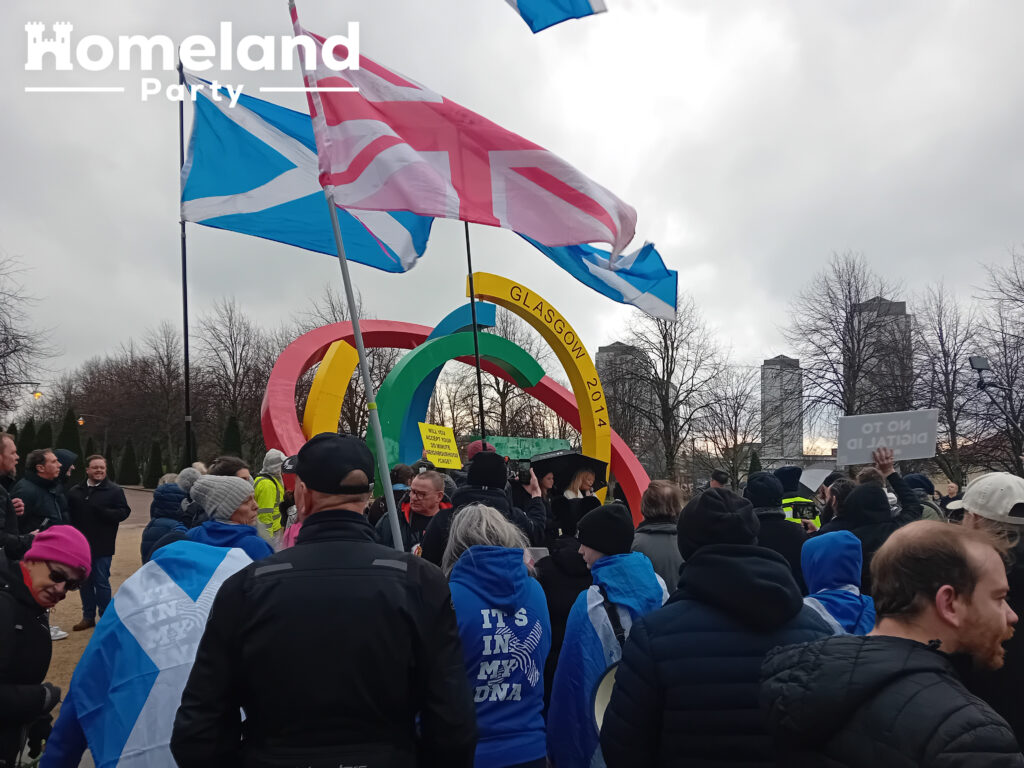The Metropolitan Police Chief had said that hate crime laws “probably need redrawing” as he faced criticism over the lack of arrests and alleged hate during a pro-Palestine rally in London.
This comes as videos have emerged online of a man shouting “Jihad” in proximity of the march.
Sir Mark Rowley said that having reviewed footage of the clip, the Met had not identified any offences.
He said the police were “ruthless in tackling anybody who puts their foot over the legal line”.
But he added: “Our job is to enforce that line; Parliament’s job is to draw that line – maybe some of the lines aren’t in the right place.”
Rowley said he had brought the subject up with the Home Office, but they have yet to make plans to give the police more powers to crack down on extremist chants.
On Sunday, the Met said they were taking no further action after footage appeared online of a man chanting “jihad, jihad” at a smaller rally staged by the Islamist group Hizb ut-Tahrir, which was close to the main march.
A statement from the force said the word jihad had “several meanings, but we know the public will most commonly associate it with terrorism”.
It said it “had not identified any offences arising from the specific clip”, and specialist lawyers at the Crown Prosecution Service had reached the same conclusion.
“However, recognising the way language like this will be interpreted by the public and the divisive impact it will have, officers identified the man involved and spoke to him to discourage any repeat of similar chanting,” the force added.
It also said no further action would be taken after it reviewed photographs of protesters holding banners referring to “Muslim armies”.
“Jihad” literally means “effort” or “struggle” in Arabic. In Islam, the primary meaning is an internal struggle, such as a believer’s struggle to live by their faith. Jihad can also be an outward struggle or war, which in Islamic teaching must be in self-defence and within prescribed limits.
So here we have a police chief asking for alterations to the law and more power for himself, sorry, his officers, yet a man from a group that teeters on the brink of proscription shouts Jihad, and the cops give him a ticking off. The reason is that they can’t define the context in which he’s using the word.
We could point in the direction of several cases, most notably vlogger Markus Meechan and his “Nazi Pug” case, where the police and prosecution decided that it wasn’t a joke, as Meechan stated, essentially deciding what context he was using it in.
It seems that the Met Police and Home Office are struggling to handle the current tensions between two groups of immigrants who live in the UK but still have strong ties to their countries of origin. This situation is not what the concept of pluralism was meant to be. Instead, Sir Mark Rowley’s statement should have said; what happened to the idea of tolerance and diversity?
They don’t know what to do; conflicts between individuals are their forte (slap one or the other with a hate crime charge), but conflicts between two distinct peoples seem to go beyond a liberal’s cognitive ability to comprehend. The Foreign Secretary and a few diplomats would be a better choice. At least they have some experience of brokering peace between two nations.
The topic of hate has been controversial and has led to discussions about legislation that could curb its spread. However, such legislation will harm our rights, human dignity, and legal system. We argue that hate is an abstract concept difficult to define and enforce fairly and justly.
The greatest enemy of progressivism is human nature itself. As liberalism advances, our enlightened conditioners who favour it constantly develop new and creative ways to outlaw human emotions. However, it’s important to remember that Homeland is a nationalist movement rooted in natural philosophy. Our movement would never seek to criminalise logic or reason because it understands that reality is not our enemy.
Therefore, we must reject legislation limiting our rights and freedoms. We must be careful not to lose everything we are in pursuing a utopian progressive idea of society.


